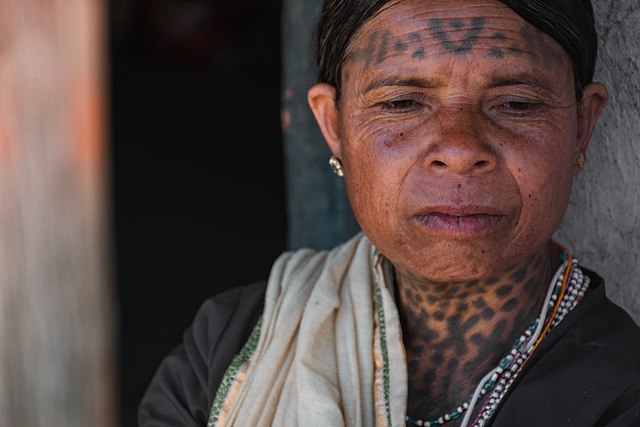
It’s almost seven in the evening on a Monday, the sun is streaming into the kitchen gilding the counters and the back of my family’s heads, we are shovelling fast food into our mouths, when my brainstorming out loud turns into an argument between my sibling and my father.
The root of the issue was over whether or not tattooing is an art form. My father sarcastically, but rather genuinely, called tattooing “an abomination” while my sibling indignantly proclaimed they would become a tattoo artist and cover themselves in tattoos.
My father’s attitude is the remnant of older generations and a man who has always wished for there to be some sort of projection technology with which you could change or remove your tattoos at will. The permanence of the tattoo is often what provokes so much uncertainty, but the desire for one’s body to be a canvas, to become art, is one that transcends time and space.
There is evidence that the practice of tattooing dates back at least 5000 years old since the discovery of “Otzi the Iceman” on the Italian-Austrian border in the nineties. The Iceman has around sixty tattoos which archaeologists theorise were placed to relieve joint pain. In an article from Smithsonian Magazine, they describe that Ancient Siberian nomads, Indigenous Polynesians, Nubians, Native South Americans and Greeks all had tattooing traditions “for a variety of reasons: to protect from evil; declare love; signify status or religious beliefs; as adornments and even forms of punishment.”
In modern times the decision behind acquiring a tattoo can be the same, though in many cases it transcends these reasons. An article from the World Journal of Psychology holds evidence that the acquisition of a tattoo is linked to higher self esteem, as well as being a way of expressing agency and feeling closer and more connected to one’s body. It’s a window into a person’s psychology as the tattoos across one’s life tell the story of them. Whether it’s a picture of Hello Kitty, a testament to a traumatic experience, a mark of bereavement, or an overused saying, it means something to the individual. This remains true even if that meaning is derived from the lack of significance. It makes sense that tattooing has become popularised in certain parts of the world which formerly held prejudices as the past decades have marked a reclamation of personal identity and the body, and the untangling of social restrictions placed upon people. That and the invention of Pinterest.
Whether one is researching modern iterations or ancient and culturally significant traditions, as an art form tattooing is incredibly fascinating and personal. The permanence of it is a testament to the permanent parts of our selves. Even if time and circumstance cause that self to be tucked deep within, the tattoo holds the memory. It’s a binding, to yourself, to your body, to loved ones or life. In this, tattoos and tattooing must be respected, as they are often willfully misunderstood as rash and foolish decisions. The fact that people do want to remove them sometimes is more a testament to the desire to unbind themselves from what the tattoo represents, rather than the purported idiocy of the decision.
Tattooing often inspires fear, which I feel is often the fear of having a part of one’s self exposed in a certain way. People are afraid they will regret their choice, but more deeply means disliking who they once were, or feeling cut off from the person they were at the time. It’s a fear of change and the unknown: fears that are intrinsically human. In a way, getting a tattoo is a decision to accept that part of yourself across your lifetime, and not everyone can make that promise to themself. Which is ok, because to be tattooed or not to be tattooed is a decision that requires knowing oneself and no other art form provokes that degree of reflection everytime it is interacted with.
It is beautiful that humans have found a way to become the art they cherish, to make self expression eternal, to find control in an utterly chaotic world. Your body is yours, and your being is yours to express at will. In this, and for so many reasons, tattooing deserves a much greater degree of respect in academic circles, everyday discussions, and the broader art community. I hope that as its popularity increases further that more interesting discussions are provoked and that the art form is studied in a way which transcends defensive stances and becomes a true analysis of the art.






